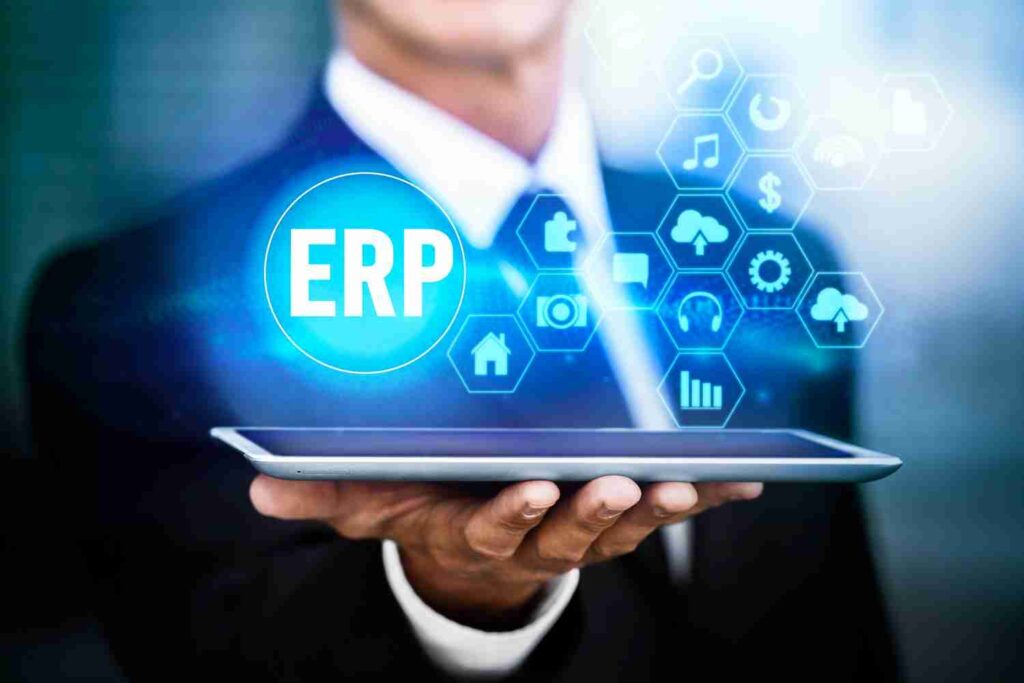All Encompassing ERP Solutions Using SharePoint, Plumtree & MS CMS
IT Chimes’ ERP Solution
This browser based internet application provides a secure unified access point, usually in the form of a web-based user interface. It is specifically designed to aggregate and personalize information through application-specific port lets, which greatly help in de-centralizing content contribution and management, and help in managing information regarding calendars, tasks and lists, such as always keeping relevant information updated. Enterprise Portal Solutions allows you to get vital information whenever and wherever you need it and makes it easier for teams to work together on shared documents.

The key benefits of Outsource Enterprise Portal Solutions offered by IT Chimes :
- Increase in productivity by adding relevant information and programs
- Increased sales, and help in decision making as quality and timely information is available
- Lowering IT maintenance costs and increasing ROI across the enterprise
At IT Chimes, we use the following Portal Solutions:
- Microsoft SharePoint Portal Server
- Microsoft Content Management Server
- Plumtree Corporate Portal
- BroadVision Enterprise Business Portals
- ISHIR Portal Solution made on Microsoft Technologies
With our effective and efficient Enterprise Portal Solutions, which add a fresh new dimension to your company’s web based infrastructure across a variety of platforms. It helps your organizations respond quickly to changes in the e-business environment, align business objectives with IT goals, and work more effectively with employees, customers, and partners. Our technical team works on building customized Outsource Enterprise Portal solutions that focus on your business needs.
Frequently Asked Questions
Investing in an ERP Portal Solution helps businesses automate processes, reduce manual errors, improve data accuracy, and enhance overall efficiency. It also provides better visibility into business operations, supports growth, and ensures compliance with industry regulations.
Key features include financial management, inventory control, customer relationship management (CRM), human resource management, supply chain management, data analytics, and reporting. Many ERP systems also offer customizable dashboards and integration capabilities with other software.
ERP solutions automate routine tasks, reduce redundant data entry, and centralize data for easy access across departments. This reduces operational delays, minimizes errors, and allows employees to focus on more strategic tasks, ultimately improving overall efficiency.
ERP solutions are highly versatile and can benefit a wide range of industries, including manufacturing, retail, healthcare, education, logistics, and professional services. They are particularly valuable for industries with complex operations and a need for streamlined processes.
Implementation time varies depending on the complexity of the business processes and customization needs. Typically, it can take anywhere from a few months to a year. Proper planning, testing, and training are essential for a smooth rollout.
Common challenges include resistance to change, data migration issues, inadequate training, and lack of proper planning. To overcome these challenges, it’s crucial to have a clear strategy, involve key stakeholders, and provide adequate support and training to users.
ERP Portal Solutions are designed with robust security measures, including user authentication, data encryption, access controls, and regular updates to safeguard against cyber threats. However, maintaining security also requires regular audits and adherence to best practices.
Yes, most ERP systems offer a high degree of customization, allowing businesses to tailor features, workflows, and dashboards to match their specific processes and requirements. Customization helps ensure that the ERP solution aligns closely with the business goals.
The cost varies widely depending on the size of the business, number of users, customization, and the type of deployment (cloud vs. on-premises). Costs can include licensing, implementation, training, and ongoing maintenance fees. It’s important to conduct a cost-benefit analysis to ensure the investment aligns with expected ROI.
On-premises ERP solutions are installed locally on a company’s own servers, offering greater control and security but requiring higher upfront costs and maintenance. Cloud-based ERP solutions are hosted on the provider’s servers, offering lower initial costs, automatic updates, scalability, and remote accessibility.
